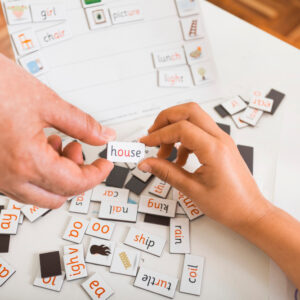MULTILINGUAL
FAMILIES

Who we are?
Glossophia helps BILINGUAL and MULTILINGUAL Families become a thriving fully bilingual or multilingual family by raising their children 0-18 years of age in all their Native languages So they can maintain, CULTIVATE and FLOURISH in their cultural and linguistic IDENTITY for opportunities without borders

Is my child bilingual?
If so, how do I know?Bilingualism refers to the use of two (or more) languages on a regular basis.
One of the most common misconception about bilingualism
One of the most common misconception about bilingualism is that it would be the equal,
high-achieving fluency of 2 or more language at a same point of time.
For that reason, some parents gets discouraged and give up, believing the lie that
their child is not and will never be bilingual. This simply is not true.
There are two main types of bilingualism
There are two main types of bilingualism:
simultaneous bilingualism, and sequential bilingualism.
Is good to learning simultaneously or not?
Neither is superior to the other, and many multilingual may have developed some languages simultaneously,
and others at different times of their lives.
Is it easier to acquire other languages?
Being multilingual gives you to ability to acquire other languages more easily because your brain is wired to learn languages.
The SUPERPOWERS of Multilingualism for children
Does your child use two or more languages on a regular basis? And by “regular”, I mean even once a week, or once a month. If you answer YES to that question, congratulations, your child IS bilingual!
But do you know that the multilingual brain, whether the languages have been acquired simultaneously or sequentially, have different qualities and SUPERPOWERS than the monolingual brain?
So which SUPER POWERS do you want to give to your child as a legacy?
Cognitive flexibility
Improves the brain’s executive function
Higher memory retention
Better at problem-solving as languages work as puzzles
Boundless creativity and originality
Improves performance in other areas
Enhances ability to multitask

Superior metalinguistic abilities
Greater cultural awareness and open-mindedness
Greater empathy
Better productivity and Focus
Enhanced communication skills
Denser grey matter
Lower risk of dementia and other neurological degenerative diseases
How to support your multilingualism as a family?
1. Create meaningful language rituals
2. Use linguistic materials: books, music,
movies, etc
3. Surround yourselves with a support network:
family, friend, multilingual coach, etc
4. Find the support of an educational institution:
bilingual school or Playgroup or club, etc.
5. Have fun! We learn when we have fun. It’s a LOVE
language. Hold on, keep it up, encourage your children,
encourage yourself… it is WORTH it





